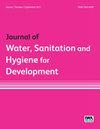探索改善月经健康和环境影响的有机卫生产品市场
IF 1.6
4区 环境科学与生态学
Q3 WATER RESOURCES
Journal of Water Sanitation and Hygiene for Development
Pub Date : 2023-02-03
DOI:10.2166/washdev.2023.020
引用次数: 3
摘要
世界各地的许多月经来潮者获得月经教育和管理月经的卫生方法的机会有限。卫生用品的使用受经济状况、资源接近程度、教育程度和文化信仰的影响。卫生用品使用不当或缺乏卫生用品会导致严重的健康问题。基于塑料的商用护垫需要几十年的时间才能降解,对环境造成危害,并对月经来潮者的健康构成风险。为了解决缺乏教育和月经用品的问题,有必要开发廉价、环保、文化上可接受的月经卫生垫。有机卫生巾是用当地可用的材料开发的,如水葫芦、香蕉茎、竹子、纸莎草、大麻和棉花。这些卫生巾有可能为全球月经来潮者创造更好的健康和经济结果,并减少环境足迹。本文章由计算机程序翻译,如有差异,请以英文原文为准。
An exploration of market organic sanitary products for improving menstrual health and environmental impact
Many menstruators around the world have limited access to education about menstruation and to sanitary methods for managing menstruation. The use of sanitary products is influenced by economic status, proximity to resources, education, and cultural beliefs. Improper use of sanitary products or lack thereof can lead to major health issues. Plastic-based, commercial pads take decades to degrade and cause harm to the environment and pose health risks to menstruators. To combat the lack of education and accessibility to menstrual products, there is a need to develop inexpensive, environmentally friendly, and culturally acceptable menstrual hygiene pads. Organic sanitary pads have been developed with locally available materials, such as water hyacinth, banana stems, bamboo, papyrus, hemp, and cotton. These sanitary pads have the potential to create better health and economic outcomes for menstruators across the globe and reduce the environmental footprint.
求助全文
通过发布文献求助,成功后即可免费获取论文全文。
去求助
来源期刊

Journal of Water Sanitation and Hygiene for Development
WATER RESOURCES-
CiteScore
3.10
自引率
11.80%
发文量
58
审稿时长
16 weeks
期刊介绍:
The Journal of Water, Sanitation and Hygiene for Development is a peer-reviewed journal devoted to the dissemination of high-quality information on the science, policy and practice of drinking-water supply, sanitation and hygiene at local, national and international levels.
 求助内容:
求助内容: 应助结果提醒方式:
应助结果提醒方式:


